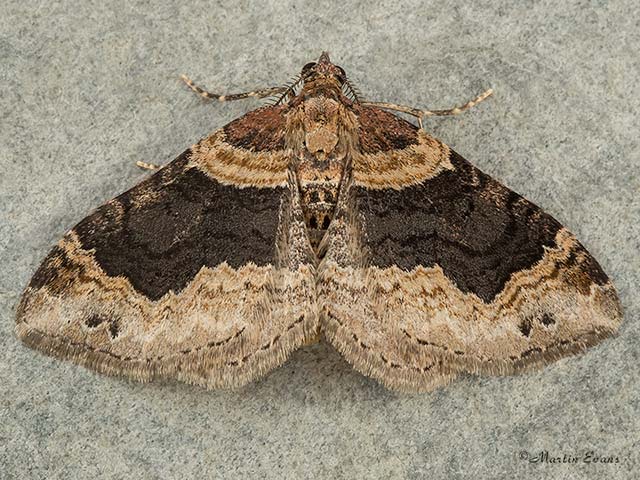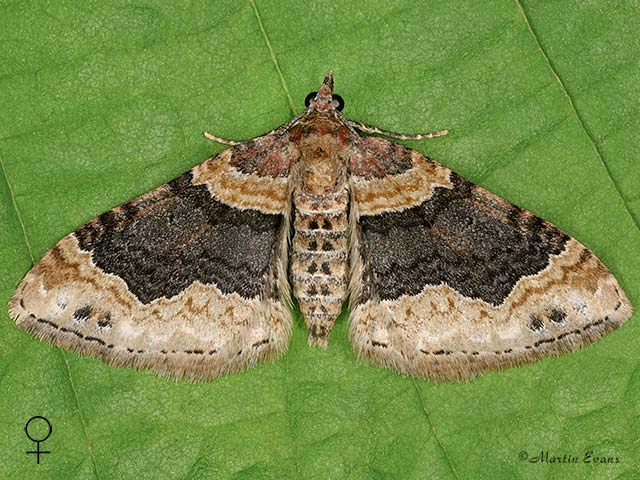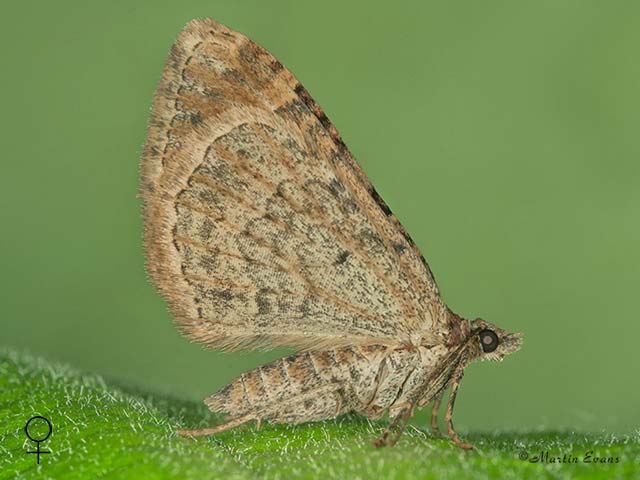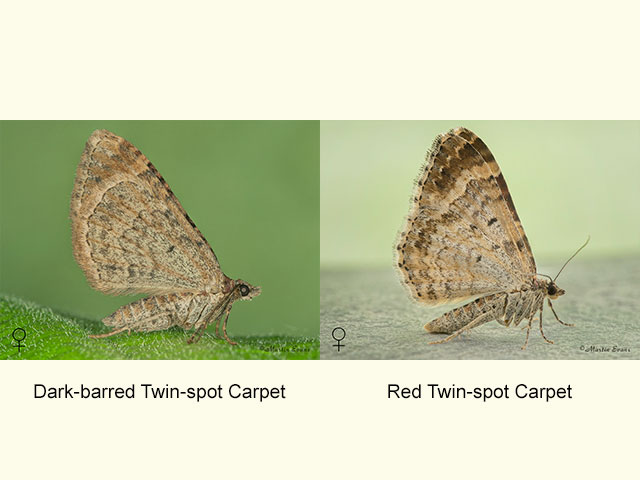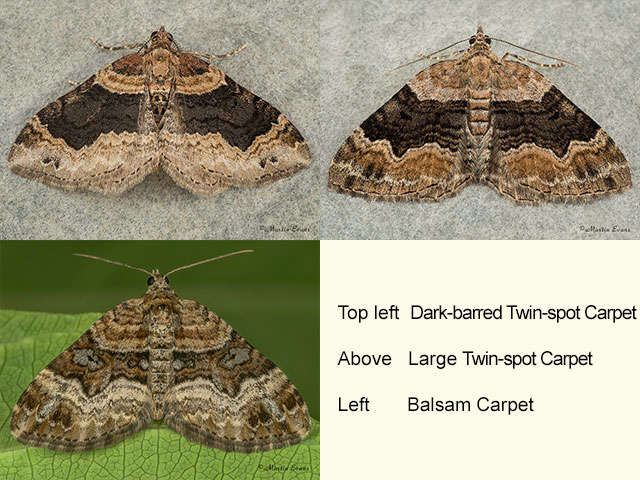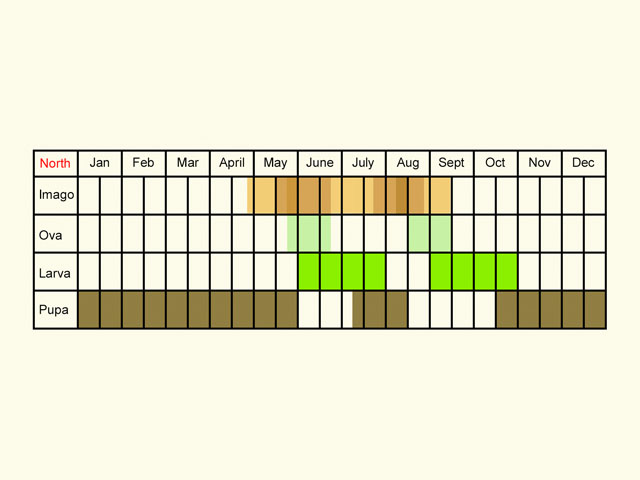Geometridae
70.052 Dark-barred Twin-spot Carpet Xanthorhoe ferrugata (Clerck, 1759)
Common
Similar species: Although Red Twin-spot Carpet Xanthorhoe spadicearia is generally brighter with a broader, brighter, white outer edge to the bar and has more contrasting markings on the underside of the wings, worn specimens could be mistaken for the uncommon red form of Dark-barred Twin-spot Carpet Xanthorhoe ferrugata. So if worn check the genitalia.
Large Twin-spot Carpet Xanthorhoe quadrifasciata is larger (14 to 16mm) and darker in the outer area of the forewing.
Balsam Carpet Xanthorhoe biriviata is only likely to be mistaken for this species if worn, as it has blue-grey markings in the forewing band and is darker in the outer area of the forewing.
Forewing: 12 to 13mm
Habitats: Woodland, scrub, hedgerows, gardens, downland, moorland, marshes, fens and coastal sand-dunes.
Habits: The moth flies from dusk and comes to light.
Foodplant: The larva feeds on bedstraws, docks, Dandelion, Ground-ivy and other low-growing plants. It pupates in a cocoon in the leaf litter.
On the European mainland it has been recorded feeding on chickweeds, stitchworts and bellflowers.
